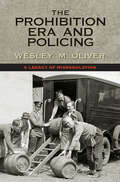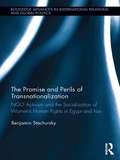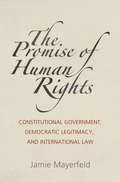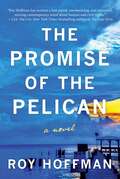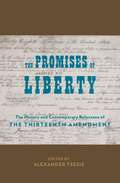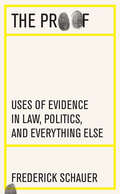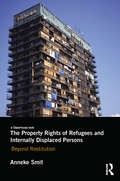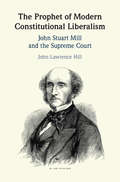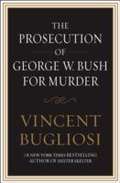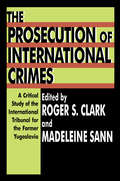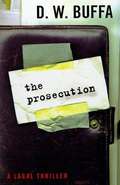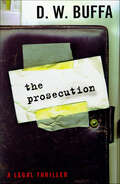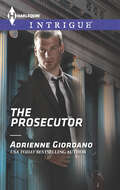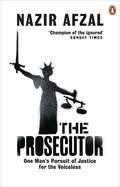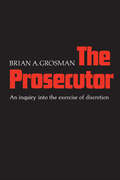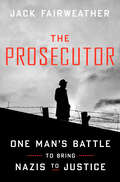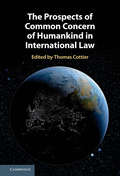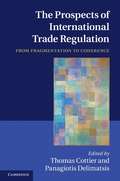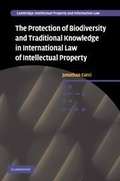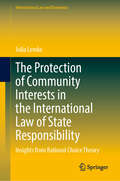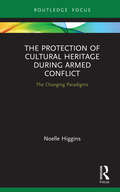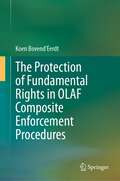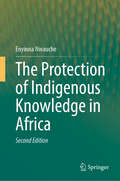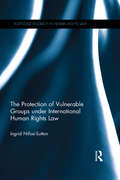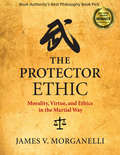- Table View
- List View
The Prohibition Era and Policing: A Legacy of Misregulation
by Wesley M. OliverLegal precedents created during Prohibition have lingered, leaving search-and-seizure law much better defined than limits on police use of force, interrogation practices, or eyewitness identification protocols. An unlawful trunk search is thus guarded against more thoroughly than an unnecessary shooting or a wrongful conviction. Intrusive searches for alcohol during Prohibition destroyed middle-class Americans' faith in police and ushered in a new basis for controlling police conduct. State courts in the 1920s began to exclude perfectly reliable evidence obtained in an illegal search. Then, as Prohibition drew to a close, a presidential commission awakened the public to torture in interrogation rooms, prompting courts to exclude coerced confessions irrespective of whether the technique had produced a reliable statement. Prohibition's scheme lingered long past the Roaring '20s. Racial tensions and police brutality were bigger concerns in the 1960s than illegal searches, yet when the Supreme Court imposed limits on officers' conduct in 1961, searches alone were regulated. Interrogation law during the 1960s, fundamentally reshaped by the Miranda ruling, ensured that suspects who invoked their rights would not be subject to coercive tactics, but did nothing to ensure reliable confessions by those who were questioned. Explicitly recognizing that its decisions excluding evidence had not been well-received, the Court in the 1970s refused to exclude identifications merely because they were made in suggestive lineups. Perhaps a larger project awaits—refocusing our rules of criminal procedure on those concerns from which Prohibition distracted us: conviction accuracy and the use of force by police.
The Promise and Perils of Transnationalization: NGO Activism and the Socialization of Women’s Human Rights in Egypt and Iran (Routledge Advances in International Relations and Global Politics)
by Benjamin StachurskyTo date, most constructivist international relations studies have characterized the influence of transnationalism on domestic forms of activism as uniformly positive. In particular, transnational interactions are viewed as positive factors for the development and daily impact of gender activism. Benjamin Stachursky’s book questions the unvarying positive view of transnationalism on domestic forms of activism, arguing for a more nuanced analysis that permits an understanding of the enabling and restricting effects of transnationalism. Stachursky also challenges the dominant view of civil society as normatively homogenous by illustrating the complex relationships and conflicts that exist between NGOs and other civil society representatives. He grounds his theoretical arguments with a comparative case study on women’s rights activism in Egypt and Iran, which uses semi-structured interviews with women’s rights activists in the two countries and analysis of documentation by local political and societal actors. Looking at the period from the mid-1980s up to present developments such as the Arab Spring, Stachursky analyzes the emergence and development of NGO activism in Egypt and Iran, the social, political, and legal context of NGO activism, and key domestic debates on the impact and legitimacy of the actors operating in women’s rights activism. By closely examining the ambivalent relationship between transnationalism and human rights organizations, Stachursky proves that transnationalization has both enabling and constraining effects on the domestic legitimacy of women’s rights activists and on their ability to create meaningful social and political change.
The Promise of Human Rights: Constitutional Government, Democratic Legitimacy, and International Law (Pennsylvania Studies in Human Rights)
by Jamie MayerfeldInternational human rights law is often criticized as an infringement of constitutional democracy. In The Promise of Human Rights, Jamie Mayerfeld argues to the contrary that international human rights law provides a necessary extension of checks and balances and therefore completes the domestic constitutional order. In today's world, constitutional democracy is best understood as a cooperative project enlisting both domestic and international guardians to strengthen the protection of human rights. <P><P>Reasons to support this view may be found in the political philosophy of James Madison, the principal architect of the U.S. Constitution.The Promise of Human Rights presents sustained theoretical discussions of human rights, constitutionalism, democracy, and sovereignty, along with an extended case study of divergent transatlantic approaches to human rights. Mayerfeld shows that the embrace of international human rights law has inhibited human rights violations in Europe whereas its marginalization has facilitated human rights violations in the United States. <P><P>A longstanding policy of "American exceptionalism" was a major contributing factor to the Bush administration's use of torture after 9/11.Mounting a combination of theoretical and empirical arguments, Mayerfeld concludes that countries genuinely committed to constitutional democracy should incorporate international human rights law into their domestic legal system and accept international oversight of their human rights practices.
The Promise of the Pelican: A Novel
by Roy HoffmanFor fans of Harper Lee and Rita Mae Brown, Roy Hoffman's new novel is steeped in a sense of place--coastal Alabama--with its rich tapestry of characters caught in a web of justice not for all.Early Praise for The Promise of the Pelican: "Roy Hoffman has written a fast-paced, mesmerizing and incredibly moving contemporary novel about human and civil rights,"-- bestselling author Lee Smith "A thrilling novel, with characters as memorable as those of Shakespearean tragedy...I could not put it down." --Sena Jeter Naslund, author of Ahab's Wife At once a literary crime novel and an intergenerational family drama, The Promise of the Pelican is set in the multicultural South, where justice might depend on the color of your skin and your immigration status. Hank Weinberg is a modern day Atticus Finch, recently retired as a defense attorney in Mobile, Alabama, and a Holocaust survivor, who fled the Nazis as a young child. With his daughter in rehab, he's now taking care of his special needs grandson. Mourning his dead wife, spending mornings fishing on the pier with other octogenarians, he passes the rest of his days watching over his sweet grandson with the help of Lupita, a young Honduran babysitter. When her brother Julio, an undocumented immigrant, is accused of murder, Hank must return to the courtroom to defend him while also trying to save his daughter and grandson's life from spinning out of control. The Promise of the Pelican takes its title from the legend that a pelican will pierce its own breast for blood to feed its starving chicks, a metaphor for one old man who risks all to save the vulnerable. In a crisp prose style Harper Lee called "lean and clean," Hoffman writes from an enormous well of compassion. He fills his new novel with a cast of finely drawn characters of all ages and abilities facing life's harshest challenges and rising to meet them with dignity.
The Promises of Liberty: The History and Contemporary Relevance of the Thirteenth Amendment
by Alexander TsesisIn these original essays, America's leading historians and legal scholars reassess the ratification of the Thirteenth Amendment and its relevance to issues of liberty, justice, and equality. The Thirteenth Amendment abolished slavery in the United States, reasserting the radical, egalitarian dimensions of the Constitution. It also laid the foundations for future civil rights and social justice legislation. Yet subsequent reinterpretation and misappropriation have curbed more substantive change. With constitutional jurisprudence undergoing a revival, The Promises of Liberty provides a full portrait of the Thirteenth Amendment and its potential for ensuring liberty.The collection begins with Pulitzer Prize-winning historian David Brion Davis, who discusses the failure of the Thirteenth Amendment to achieve its framers' objectives. The next piece, by Alexander Tsesis, provides a detailed account of the Amendment's revolutionary character. James M. McPherson, another Pulitzer recipient, recounts the influence of abolitionists on the ratification process, and Paul Finkelman focuses on who freed the slaves and President Lincoln's commitment to ending slavery. Michael Vorenberg revisits the nineteenth century's understanding of freedom and citizenship and the Amendment's surprisingly small role in the Reconstruction and post-Reconstruction periods. William M. Wiecek shows how the Supreme Court's narrow interpretation once rendered the guarantee of freedom nearly illusory, and the collection's third Pulitzer Prize winner, David M. Oshinsky, explains how peonage undermined the prohibition against compulsory service. Subsequent essays relate the Thirteenth Amendment to congressional authority, hate crimes legislation, the labor movement, and immigrant rights. These chapters analyze unique features of the amendment along with its elusive meanings and affirm its power to reform criminal and immigration law, affirmative action policies, and the protection of civil liberties.
The Proof: Uses of Evidence in Law, Politics, and Everything Else
by Frederick SchauerIn a world awash in “fake news,” where public figures make unfounded assertions as a matter of course, a preeminent legal theorist ranges across the courtroom, the scientific laboratory, and the insights of philosophers to explore the nature of evidence and show how it is credibly established. In the age of fake news, trust and truth are hard to come by. Blatantly and shamelessly, public figures deceive us by abusing what sounds like evidence. Preeminent legal theorist Frederick Schauer proposes correctives, drawing on centuries of inquiry into the nature of evidence. Evidence is the basis of how we know what we think we know, but evidence is no simple thing. Evidence that counts in, say, the policymaking context is different from evidence that stands up in court. Law, science, historical scholarship, public and private decisionmaking—all rely on different standards of evidence. Exploring diverse terrain including vaccine and food safety, election-fraud claims, the January 2021 events at the US Capitol, the reliability of experts and eyewitnesses, climate science, art authentication, and even astrology, The Proof develops fresh insights into the challenge of reaching the truth. Schauer combines perspectives from law, statistics, psychology, and the philosophy of science to evaluate how evidence should function in and out of court. He argues that evidence comes in degrees. Weak evidence is still some evidence. The absence of evidence is not evidence of absence, but prolonged, fruitless efforts to substantiate a claim can go some distance in proving a negative. And evidence insufficient to lock someone up for a crime may be good enough to keep them out of jail. This book explains how to reason more effectively in everyday life, shows why people often reason poorly, and takes evidence as a pervasive problem, not just a matter of legal rules.
The Property Rights of Refugees and Internally Displaced Persons: Beyond Restitution
by Anneke SmitThe Property Rights of Refugees and Internally Displaced Persons: Beyond Restitution pursues a rigorous examination of the various ways in which the protection of housing and property rights can contribute to durable solutions to displacement.
The Prophet of Modern Constitutional Liberalism: John Stuart Mill and the Supreme Court
by John Lawrence HillJohn Stuart Mill is the father of modern liberalism. His most remembered work, On Liberty, which was published in 1859, changed the course of the liberal tradition. What is less well-known is that his ideas have profoundly influenced the American constitutional rights tradition of the latter half of the twentieth century. Mill's 'harm principle' inspired the constitutional right to privacy recognized in Griswold v Connecticut, Roe vs Wade and other cases. His defense of freedom of expression influenced Justices Holmes, Brandeis, Douglas, Brennan and others and led to greatly expanded freedom of speech in the twentieth century. Finally, Mill was an ardent feminist whose last important work, The Subjection of Women, was a full-scale and, for its time, radical defense of complete gender equality. This is a book for lawyers who want to understand the intellectual origins of modern constitutional rights, and for political philosophers interested in the constitutional implications of Mill's conception of freedom.
The Prosecution of George W. Bush for Murder
by Vincent T. BugliosiBugliosi sets forth the legal architecture and incontrovertible evidence that President Bush took this nation to war in Iraq under false pretenses - a war that has not only caused the deaths of American soldiers but also over 100,000 innocent Iraqi men, women, and children; cost the United States over one trillion dollars thus far with no end in sight; and alienated many American allies in the Western world.
The Prosecution of International Crimes: A Critical Study of the International Tribunal for the Former Yugoslavia (The\prosecution Of International Crimes Ser.)
by Madeleine SannThe post-World War Two period has witnessed numerous armed conflicts characterized by extensive violations of relevant obligatory international norms. Responding to these events, the United Nations General Assembly created a permanent international court in 2003, with jurisdiction over selected international crimes. The International Tribunal for the Former Yugoslavia was a precursor to this permanent court. It was established for the purpose of "prosecuting persons responsible for serious violations of international humanitarian law committed in the territory of the former Yugoslavia." As a precedent for what we may expect in the future, it deserves special attention from a historical, political, and especially an international law point of view.The Prosecution of International Crimes comprehensively examines the creation, mandate, and challenges of the International Tribunal for the Former Yugoslavia. Derived from a special issue of Criminal Law Forum: An International Journal, a peer-review journal dedicated to the advancement of criminal law theory, practice, and reform throughout the world, it is now available in paperback.
The Prosecution, A Legal Thriller (Joseph Antonelli #2)
by D. W. BuffaFrom the best-selling author of The Defense, a spellbinding sequel. It was a one-way ticket out of his self-imposed isolation and into the courtroom on the right side of justice. It was a favor for his old friend Judge Horace Woolner. It was a once-in-a-lifetime chance to serve as special prosecutor in a case against a man sworn to uphold the law, Marshall Goodwin, the chief deputy district attorney accused of having his former wife murdered. It was an opportunity Joseph Antonelli couldn't walk away from. But Antonelli is walking into more than he bargained for. The Goodwin case renews his appetite for the practice of law, and although Antonelli is determined to remain on the side of justice, there are many shades between right and wrong. And Antonelli may be over his head when Russell Gray, an urbane, worldly, and wealthy man from a prominent Portland family, is found murdered in his living room. Horace Woolner's wife stands accused of the crime. With justice and love on the line, the stakes couldn't be higher. In this stunning look at our legal system and our hearts, D. W. Buffa delivers on the promise of The Defense and takes us into the dark recesses of our courtrooms and our souls, where there are no easy answers.
The Prosecution: A Legal Thriller
by D. W. BuffaA defense attorney plays for the other team when a DA is accused of murder in this “electrically charged courtroom drama” in the Edgar Award–nominated series (The New York Times).It was a one-way ticket out of his self-imposed isolation and into the courtroom on the right side of justice. It was a favor for his old friend Judge Horace Woolner. It was a once-in-a-lifetime chance to serve as special prosecutor in a case against a man sworn to uphold the law—Marshall Goodwin, the chief deputy district attorney accused of having his former wife murdered. It was an opportunity Joseph Antonelli couldn’t walk away from.But Antonelli is walking into more than he bargained for—and when a worldly, wealthy man from a prominent Portland family is found dead and the judge’s wife is accused, he may be in over his head . . .“A thorough look at the legal system from an insider’s viewpoint . . . dynamic writing and well-rounded characterization.” —Library Journal“Buffa’s spare observation, crackling dialogue, and shadowy circle of criminals, lawyers, and lovers keep you riveted.” —Entertainment Weekly“Explosive . . . Buffa is one of a kind.” —San Jose Mercury News
The Prosecutor
by Adrienne GiordanoA Chicago law student tangles with a sexy attorney as she works to free an innocent man in this romantic suspense tale by a USA Today–bestselling author. Chicago assistant state’s attorney Zac Hennings just got handed a political hot potato: keeping the convicted murderer in a high-profile case behind bars. He’s up against his most formidable—and alluring—adversary. First-year law student Emma Sinclair is passionately fighting to free her brother. But she needs the take-no-prisoners prosecutor’s help.Caught between attraction and letting a killer go free, Zac walks a tightrope. Until evidence surfaces that the real culprit’s still out there. With his career and Emma’s life on the line, Zac races to right a terrible wrong. Refusing to back down, he’ll bring a cunning lawbreaker to justice—or die trying.
The Prosecutor
by Nazir AfzalThe outsider who transformed our justice systemNazir Afzal knows a thing or two about justice. As a Chief Prosecutor, it was his job to make sure the most complex, violent and harrowing crimes made it to court, and that their perpetrators were convicted. From the Rochdale sex ring to the earliest prosecutions for honour killing and modern slavery, Nazir was at the forefront of the British legal system for decades.But his story begins in Birmingham, in the sixties, as a young boy facing racist violence and the tragic death of a young family member - and it's this that sets him on the path to his groundbreaking career, and which enables him to help communities that the conventional justice system ignores, giving a voice to the voiceless.A memoir of struggle and survival as well as crime and punishment, The Prosecutor is both a searing insight into the justice system and a powerful story of one man's pursuit of the truth.
The Prosecutor: An Inquiry into the Exercise of Discretion
by Brian A. GrosmanEvery day decisions made by prosecutors, before trial takes place, critically affect the rights of citizens; yet these decisions remain a grey area in the administration of criminal justice. In fact, there are considerable and important differences between what the prosecutor does and what the legal literature and judicial decisions say he should do. Very little is known about the powers wielded by prosecutors and the factors which influence their exercise of discretion. This inquiry focuses on the decision-making role of the prosecutor in pre-trial determinations. Professor Grosman describes and analyses the prosecutor's informal relations with the police and defence lawyers, and the significance these relationships have for the accused and for the fair administration of justice. Other areas examined include the decision to begin prosecution, the negotiated guilty plea, and the prosecutor's administrative bias. The study concludes with recommendations for judicial and legislative reform. Professor Grosman has added a preface to this edition outlining the changes that have occurred in recent years. A lucid and revealing description of the prosecutor's attitudes to criminal prosecution and its operation, this study contributes important insights valuable to lawyers and all those concerned with the administration of justice, and will be of interest to everyone concerned with social problems.
The Prosecutor: One Man's Battle to Bring Nazis to Justice
by Jack FairweatherFrom the #1 Sunday Times bestselling author of The Volunteer, the powerful true story of a Jewish lawyer who returned to Germany after World War II to prosecute war crimes, only to find himself pitted against a nation determined to bury the past.At the end of the Nuremberg trial in 1946, some of the greatest war criminals in history were sentenced to death, but hundreds of thousands of Nazi murderers and collaborators remained at large. The Allies were ready to overlook their pasts as the Cold War began, and the horrors of the Holocaust were in danger of being forgotten.In The Prosecutor, Jack Fairweather brings to life the remarkable story of Fritz Bauer, a gay, Jewish judge from Stuttgart who survived the Nazis and made it his mission to force his countrymen to confront their complicity in the genocide. In this deeply researched book, Fairweather draws on unpublished family papers, newly declassified German records, and exclusive interviews to immerse readers in the shadowy, unfamiliar world of postwar West Germany where those who implemented genocide run the country, the CIA is funding Hitler&’s former spy-ring in the east, and Nazi-era anti-gay laws are strictly enforced. But once Bauer landed on the trail of Adolf Eichmann, he wouldn&’t be intimidated. His journey took him deep into the dark heart of West Germany, where his fight for justice would set him against his own government and a network of former Nazis and spies bent on silencing him.In a time when the history of the Holocaust is taken for granted, The Prosecutor reveals the courtroom battles that were fought to establish its legacy and the personal cost of speaking out. The result is a searing portrait of a nation emerging from the ruins of fascism and one man&’s courage in forcing his people—and the world—to face the truth.
The Prospects of Common Concern of Humankind in International Law
by Zaker AhmadThe Common Concern of Humankind today is central to efforts to bring about enhanced international cooperation in fields including, but not limited to, climate change. This book explores the expression's potential as a future legal principle. It sets out the origins of Common Concern, its differences to other common interest legal principles, and expounds the potential normative structure and effects of the principle, applying an approach of carrots and sticks in realizing goals defined as a Common Concern. Individual chapters test the principle in different legal fields, including climate technology diffusion, marine plastic pollution, human rights enforcement, economic inequality, migration, and monetary and financial stability. They confirm that basic obligations under the principle of 'Common Concern of Humankind' comprise not only that of international cooperation and duties to negotiate, but also of unilateral duties to act to enhance the potential of public international law to produce appropriate public goods.
The Prospects of International Trade Regulation
by Thomas Cottier Panagiotis DelimatsisFor a long time, the GATT led a life of its own as a self-contained regime. The evolution from tariff to non-tariff barriers brought about increasing overlaps with other regulatory areas. WTO rules increasingly interface with other areas of law and policy, including environmental protection, agricultural policies, labour standards, investment, human rights and regional integration. Against this backdrop, this book examines fragmentation in international trade regulation across a wide array of regulatory fields. To this end, it uses a conceptually coherent theoretical framework which is based on the effort to bring about greater coherence among different policy goals and fields, and thus to embed the multilateral trading system within the broader framework of international economics, law and relations. It will appeal to those interested in a forward-looking discussion of the most pressing issues of the international trade agenda.
The Protection of Biodiversity and Traditional Knowledge in International Law of Intellectual Property
by Jonathan CurciAs its economic potential has expanded rapidly, intellectual property has become a subject of front-rank legal importance. Cambridge Intellectual Property and Information Law is a series of monograph studies of major current issues in intellectual property. Each volume contains a mix of international, European, comparative and national law, making this a highly significant series for practitioners, judges and academic researchers in many countries.
The Protection of Community Interests in the International Law of State Responsibility: Insights from Rational Choice Theory (International Law and Economics)
by Julia LemkeThis book redefines the traditional understanding of state responsibility. It presents a compelling argument that international law's effectiveness hinges on its ability to protect not only state interests but also those of the global community. Drawing from principles established in the Articles on the Responsibility of States for Internationally Wrongful Acts (ARSIWA), the book examines how states, conceptualised as rational actors, navigate collective action challenges. Through a law and economics lens, it sheds light on the role of international state responsibility in providing global public goods and safeguarding common pool resources. This interdisciplinary book offers valuable insights and normative suggestions for enhancing the ARSIWA's efficacy in promoting community interests. It will appeal to scholars and practitioners in public international law, law and economics, and international relations, interested in a better understanding of international law's role in tackling pressing global issues.
The Protection of Cultural Heritage During Armed Conflict: The Changing Paradigms
by Noelle HigginsThis book analyses the current legal framework seeking to protect cultural heritage during armed conflict and discusses proposed and emerging paradigms for its better protection. Cultural heritage has always been a victim of conflict, with monuments and artefacts frequently destroyed as collateral damage in wars throughout history. In addition, works of art have been viewed as booty by victors and stolen in the aftermath of conflict. However, deliberate destruction of cultural sites and items has also occurred, and the Intentional destruction of cultural heritage has been a hallmark of recent conflicts in the Middle East and North Africa, where we have witnessed unprecedented, systematic attacks on culture as a weapon of war. In Iraq, Syria, Libya, Yemen, and Mali, extremist groups such as ISIS and Ansar Dine have committed numerous acts of iconoclasm, deliberately destroying heritage sites, and looting valuable artefacts symbolic of minority cultures. This study explores how the international law framework can be fully utilised in order to tackle the destruction of cultural heritage, and analyses various paradigms which have recently been suggested for its better protection, including the Responsibility to Protect paradigm and the peace and security paradigm. This volume will be an essential resource for scholars and practitioners in the areas of public international law, especially international humanitarian law and cultural heritage law.
The Protection of Fundamental Rights in OLAF Composite Enforcement Procedures
by Koen Bovend'EerdtThis book focuses on OLAF, the European Union’s anti-fraud office, and examines the role of and challenges concerning fundamental rights in OLAF’s composite enforcement procedure. The mission of OLAF (Office Européen de Lutte Antifraude) is to fight fraud, corruption and any other illegal activities that affect the financial interests of the European Union. To this end, OLAF carries out administrative investigations, in which it gathers evidence itself, and coordination cases, in which it coordinates the Member States’ investigations. OLAF’s investigation and coordination efforts are conceived of as mere derivatives of other more traditional forms of law enforcement cooperation in which authorities enter into obligations to cooperate with one another, but in which each acts to fulfill these obligations within its own separately identifiable legal order and on the basis of its own law. This system, in its most conventional form, is founded on the notion of territorial sovereignty. If we extend the logic of this approach from enforcement (the ‘sword’) to fundamental rights (the ‘shield’), issues in relation to the latter – and the accompanying responsibility to prevent and/or remedy them – can arise only in individual (sovereign) legal orders. The way in which we view OLAF, as an evolved cognate of traditional forms of law enforcement cooperation, therefore directly dictates which fundamental rights issues enter into the equation, and in which manner.This book proposes an innovative way of looking at OLAF, which we refer to as ‘composite enforcement procedures.’ In this type of procedure, responsibilities for the entirety of enforcement are attributed to inextricably interlinked European Union and Member State legal orders. If we observe OLAF through this new lens, fundamental rights issues that would otherwise go unnoticed come to the forefront. These are issues that arise not in individual legal orders, but rather between or among the European Union and the Member States. This book addresses these fundamental rights challenges and makes concrete recommendations on how they can be addressed and resolved.
The Protection of Indigenous Knowledge in Africa
by Enyinna NwaucheThis book provides a comprehensive contemporary and timely account of the protection of indigenous knowledge in Africa by examining issues such as the nature of indigenous knowledge as part of indigenous property and as the fulcrum of indigenous communities in Africa. Acknowledging the centrality of the members of communities of origin in the production and reproduction of indigenous knowledge, this book discusses options to manage the tension between members of the community, communities of origin and their political community. Furthermore, the book abandons the conceptual distinction between ‘negative’ and ‘positive’ protection and turns towards a subject consideration of indigenous Scientific and Technical Indigenous Knowledge (STIK); indigenous heritage; indigenous designs; indigenous music; indigenous audio-visual, indigenous signs expressions and terms as well as the indigenous literary works that are examined within the context of case studies of the indigenous knowledge human and peoples’ rights. The book concludes that Africa’s modest record of the protection of indigenous knowledge must factor in its extensive use as the foundation of Africa’s entertainment industry and recommends a tripod of ‘community’ ‘participation’ and ‘reward as principles of effective protection. Building on the 2017 title of ‘The Protection of Traditional Cultural Expressions in Africa” this book adopts a mixed method of a legal pluralistic account of indigenous knowledge; using intellectual property as a lens to view indigenous knowledge and a cultural production account of indigenous knowledge and will be useful to intellectual property lawyers; sociologists; economists; Africanists; innovation law and policy specialists and legal practitioners.
The Protection of Vulnerable Groups under International Human Rights Law (Routledge Research in Human Rights Law)
by Ingrid Nifosi-SuttonThe protection of vulnerable groups varies under international human rights law. Depending on the group at stake, protection may be more or less advanced. In some cases, the international community has deemed it necessary to adopt conventions providing for the rights of certain vulnerable groups and establishing mechanisms to verify State compliance. Other groups have not been the focus of States’ standard-setting endeavours, but their protection still falls within the scope of human rights treaties of general application and the mandate of their respective monitoring bodies. This book takes an innovative approach to the investigation of the international legal protection of vulnerable groups. Rather than examining the situation of a number of vulnerable groups and applicable international or regional conventions, this book reviews the overall scope of the protection of vulnerable groups under International Human Rights Law. This book conceptualizes the protection of vulnerable groups as an underlying and essential component of International Human Rights Law through a systematic and comprehensive analysis of international human rights law instruments and relevant practice of international and regional human rights monitoring bodies. The book illuminates how human rights monitoring bodies foster protection of vulnerable groups and their members at the domestic level, and underscores and assesses vulnerability paradigms these bodies have elaborated. The book also puts forward a legal definition of vulnerable groups. This book will be of great interest to students and scholars of international human rights law.
The Protector Ethic: Morality, Virtue, and Ethics in the Martial Way
by James V. MorganelliDiscover how the martial way leads to a protector ethic The Protector Ethic is a deep dive exploring the principles and values that must anchor a modern warrior. The author is compelling, insightful, and not afraid of controversy. As the book begins, we are thrust into the true story of a robbery turned homicide. It happens midday on a train. The victim is twenty-four, and the murderer is eighteen. What unfolds is nothing short of horrific, yet the other passengers refuse to help. James V. Morganelli sees this as a symptom. When we are reluctant to defend ourselves, when we refuse to protect those around us, we become part of the disease. As a martial artist and ethicist, the author says martial arts are much more than technical exercises. They offer us a “physical philosophy”—one that allows us to understand ourselves, teaches us about others, and demonstrates the true meaning of justice. They help us make difficult moral decisions. Ultimately, isn’t this why we train? Readers will • Understand natural law, protective instinct, and self-risk. • Examine the martial way of valuing, reasoning, judging, and acting. • Discover how moral relativism, political correctness, and contrived social-justice campaigns do not make people equal. They can actually dehumanize us. • Recognize what it means to be an ethical warrior. Only the great books address philosophy for the contemporary warrior, which is why such titles as Zen in the Martial Arts, Living the Martial Way, and Meditations on Violence have become modern classics. The Protector Ethic is an indispensable contribution to this conversation. “Are you seeking ancient martial secrets?” Morganelli writes. “Here’s one. You already know how to defend yourself. A qualified instructor can run you through the basics, but that should take about ten minutes. After that, the serious work begins.” The martial way only lives when we treat it as something that can die.
